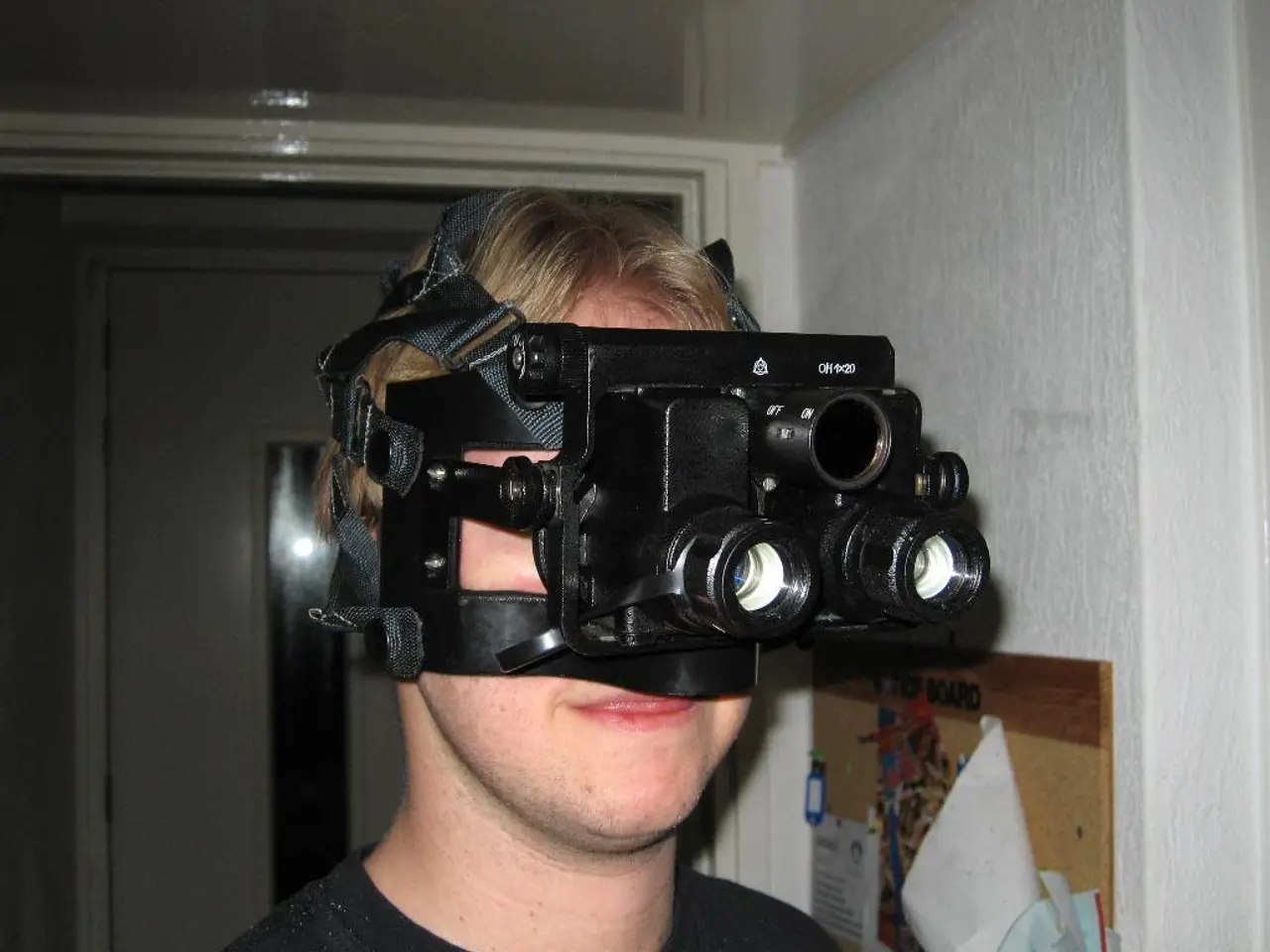Enhancing Employee Capabilities with Virtual Reality-based Soft Skills Education
In the modern business landscape, the pursuit of excellence in communication, leadership, and teamwork skills has never been more critical. Enter Virtual Reality (VR) soft skills training, an innovative solution that is transforming the way companies approach employee development.
Before full-scale implementation, VR training modules are piloted with a select group of employees to gather feedback on content, usability, and effectiveness. Data from existing programs is used to inform VR training design, highlighting areas for improvement and guiding content development.
The virtual training solutions encompass a variety of soft skills, including communication, leadership, conflict resolution, and teamwork. With VR, companies can create customized programs that address specific needs, ensuring a tailored learning experience for each employee.
Content for each VR training module is developed with the help of subject matter experts to ensure accuracy and alignment with industry best practices. Conflict resolution simulations in VR provide an effective way to train employees in handling conflicts through immersive simulations that replicate real-life scenarios, allowing employees to practice resolving conflicts in a safe, controlled environment.
Virtual reality soft skills training immerses employees in realistic scenarios where they can practice essential interpersonal skills. Repetitive practice is crucial for mastering soft skills and leading to long-term behavioral changes.
Integrating VR training with existing programs ensures a seamless learning experience. VR training modules are designed to complement and enhance current training initiatives, identifying areas where VR can provide added value, and aligning VR training with ongoing programs.
VR training offers a unique approach to enhancing cross-cultural communication skills by putting workers in situations involving other cultures, allowing them to gain a deeper appreciation for varied viewpoints and ways of life. Experienced trainers collaborate to incorporate effective teaching strategies, making the modules engaging and interactive.
Elements of gamification, such as points, badges, and leaderboards, are integrated to boost engagement and motivate employees to participate actively. As businesses increasingly adopt VR for training, it's clear that its effectiveness and engagement are driving its popularity.
The integration process is closely monitored, with feedback from participants and trainers collected to identify any issues or areas for enhancement. The integration strategy is adjusted as needed to ensure the VR training effectively supports and enhances existing programs.
VR soft skills training emerges as a scalable, flexible, and impactful solution for developing critical interpersonal workplace skills that traditional methods struggle to teach effectively. VR enables continuous improvement through data collection and analysis, ensuring the training remains relevant and effective.
Moreover, VR provides a controlled environment where employees can practice without real-world consequences. Reflection and self-assessment opportunities are provided after each module to help employees consolidate their learning and identify areas for further development.
Embracing VR technology can significantly elevate team capabilities and drive tangible improvements in performance and productivity. With its immersive learning experiences, VR training is promoted as an integral part of the overall training strategy, complementing traditional methods and providing clear instructions and support for accessing VR modules.
In conclusion, the future of workplace training is here, and it's virtual. By leveraging the power of VR, businesses can equip their employees with the skills they need to thrive in today's competitive environment, fostering a culture of continuous learning and growth.
- The pursuit of excellence in communication, leadership, and teamwork skills is critical in the modern business landscape, and Virtual Reality (VR) soft skills training is transforming the way companies approach employee development.
- Before full-scale implementation, VR training modules are piloted with a select group of employees to gather feedback on content, usability, and effectiveness, using data from existing programs to inform VR training design.
- VR training offers a variety of soft skills, including communication, leadership, conflict resolution, and teamwork, and companies can create customized programs addressing specific needs for a tailored learning experience.
- Conflict resolution simulations in VR provide an effective way to train employees, offering immersive simulations that replicate real-life scenarios for safe, controlled practice in handling conflicts.
- Repetitive practice in virtual reality soft skills training is crucial for mastering soft skills and leading to long-term behavioral changes.
- Integration of VR training with existing programs ensures a seamless learning experience, aligning VR training with ongoing programs to identify areas where VR can provide added value.
- VR training provides a unique approach to enhancing cross-cultural communication skills by putting workers in situations involving other cultures, fostering a deeper appreciation for varied viewpoints and ways of life.
- Elements of gamification, such as points, badges, and leaderboards, are integrated to boost engagement and motivate employees, making the modules engaging and interactive, while employers increasingly adopt VR for training due to its effectiveness and engagement.




